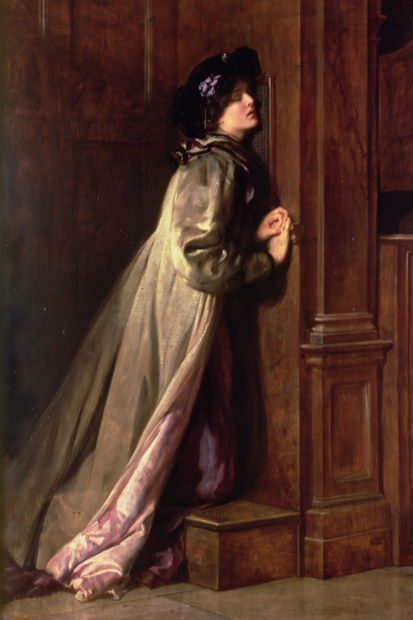I have a confession to make. I really enjoyed this book. It’s been a while since I admitted something of the sort, and I feel ashamed, because, although it’s smartly, smoothly written, my pleasure was partly based on titillation. I smirked — I occasionally snickered — at the madder facts of self-mortification, whereby in the Middle Ages the (frequently female) faithful might flaunt their holiness in acts of rank humility. Elizabeth of Hungary kissed the feet of lepers; Margaret Marie Alacoque ate vomit; Catherine of Genoa, it’s said, sucked the pus of a plague victim.
More than this, though, John Cornwell’s history of confession is preoccupied with sex, which always helps the pages riffle past. It wouldn’t be edifying, here, to recount its highlights, but let’s just say that, for anyone into clerical action, there’s a lot on offer. The emphasis is on couplings occurring during, or soon after, the sacrament.







Comments
Join the debate for just $5 for 3 months
Be part of the conversation with other Spectator readers by getting your first three months for $5.
UNLOCK ACCESS Just $5 for 3 monthsAlready a subscriber? Log in